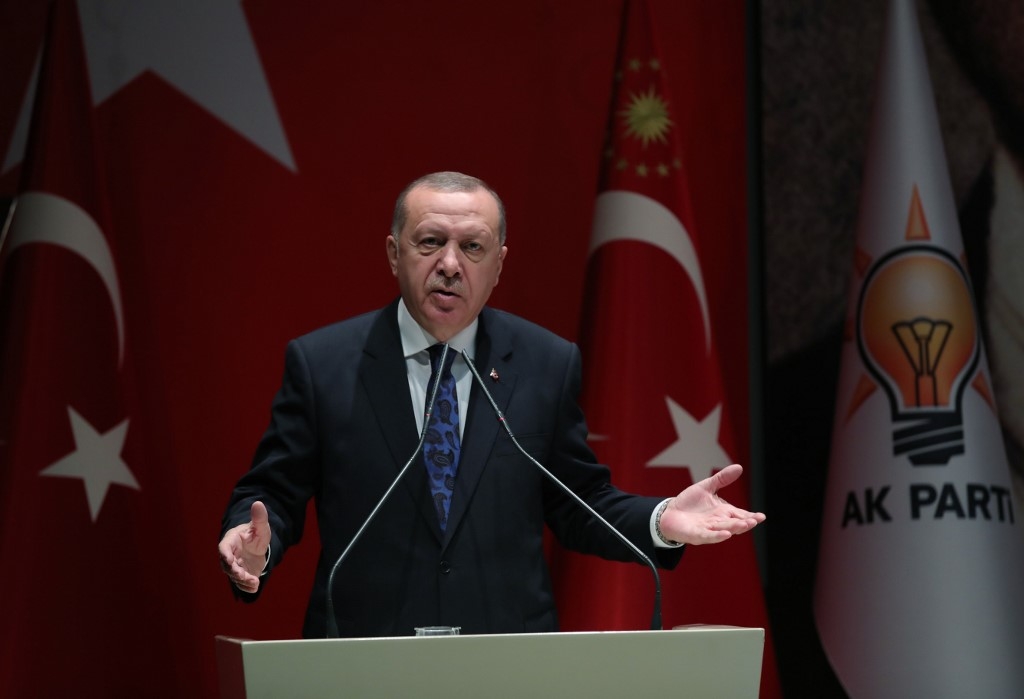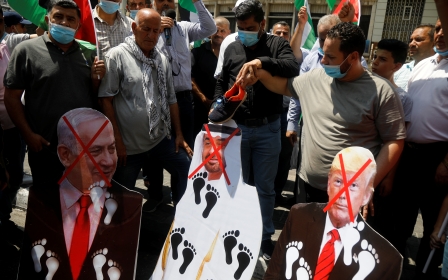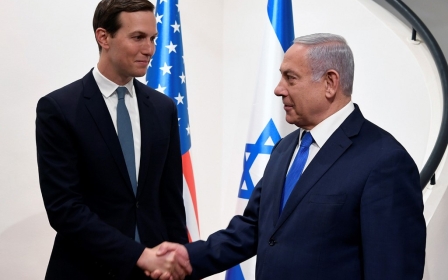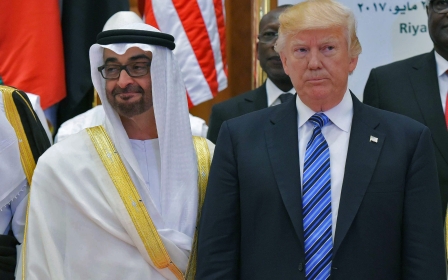Israel-UAE deal: Turkey may suspend diplomatic relations with the Emirates

Turkey may suspend its diplomatic relations with the UAE over its normalisation deal with Israel, Turkish President Recep Tayyip Erdogan said on Friday in televised remarks.
“The step regarding Palestine isn’t a step we can swallow. We may take a step to suspend diplomatic relations with Abu Dhabi, we may withdraw our ambassador,” Erdogan said.
“We are with Palestinian people. We have never ever allowed Palestine to be crushed.”
Israel and the United Arab Emirates reached an agreement on Thursday to normalise relations, a deal slammed by the Palestinians who called it a "treacherous stab in the back".
Under the agreement, which was brokered by US President Donald Trump, Israel said it had agreed to suspend the annexation of parts of the occupied West Bank. However hours later Prime Minister Benjamin Netanyahu said he remained "committed to annexing parts of the West Bank".
New MEE newsletter: Jerusalem Dispatch
Sign up to get the latest insights and analysis on Israel-Palestine, alongside Turkey Unpacked and other MEE newsletters
Despite the criticism by Erdogan, Turkey and Israel enjoy full diplomatic relations, though both countries don’t have ambassadors in place due to tensions over the Palestinians.
'The step regarding Palestine isn’t a step we can swallow. We may take a step to suspend diplomatic relations with Abu Dhabi, we may withdraw our ambassador'
- Recep Tayyip Erdogan
Ankara and the UAE have had a very combative relationship since the 2016 failed coup in Turkey, when Turkish officials began to publicly question whether the crown prince of Abu Dhabi, Mohammed bin Zayed, had something to do with the conspiracy.
In May, in a blunt statement, the Turkish foreign ministry accused the Emiratis of backing notorious Somali militant group al-Shabab, as well as the Southern Transitional Council's separatist ambitions in Yemen.
The two countries are locked in a bitter regional struggle, which recently intensified in Libya, where they support opposing parties.
Turkey suspects that a UAE-owned aircraft last month was used to target Turkish air defence systems at al-Watiya air base in western Libya, which was seized by the Turkish-backed and UN-recognised Government of National Accord earlier this year.
Last month, Turkish Minister of Defence Hulusi Akar accused the UAE of committing "malicious acts" in Libya and Syria and vowed that Ankara would hold it accountable "at the right place and time", in an interview with Al Jazeera.
"The UAE supports terrorist organisations hostile to Turkey with the intention of harming us," Akar was quoted as saying. "The UAE should consider its small size and the extent of its influence and should not spread sedition and corruption."
Middle East Eye delivers independent and unrivalled coverage and analysis of the Middle East, North Africa and beyond. To learn more about republishing this content and the associated fees, please fill out this form. More about MEE can be found here.




